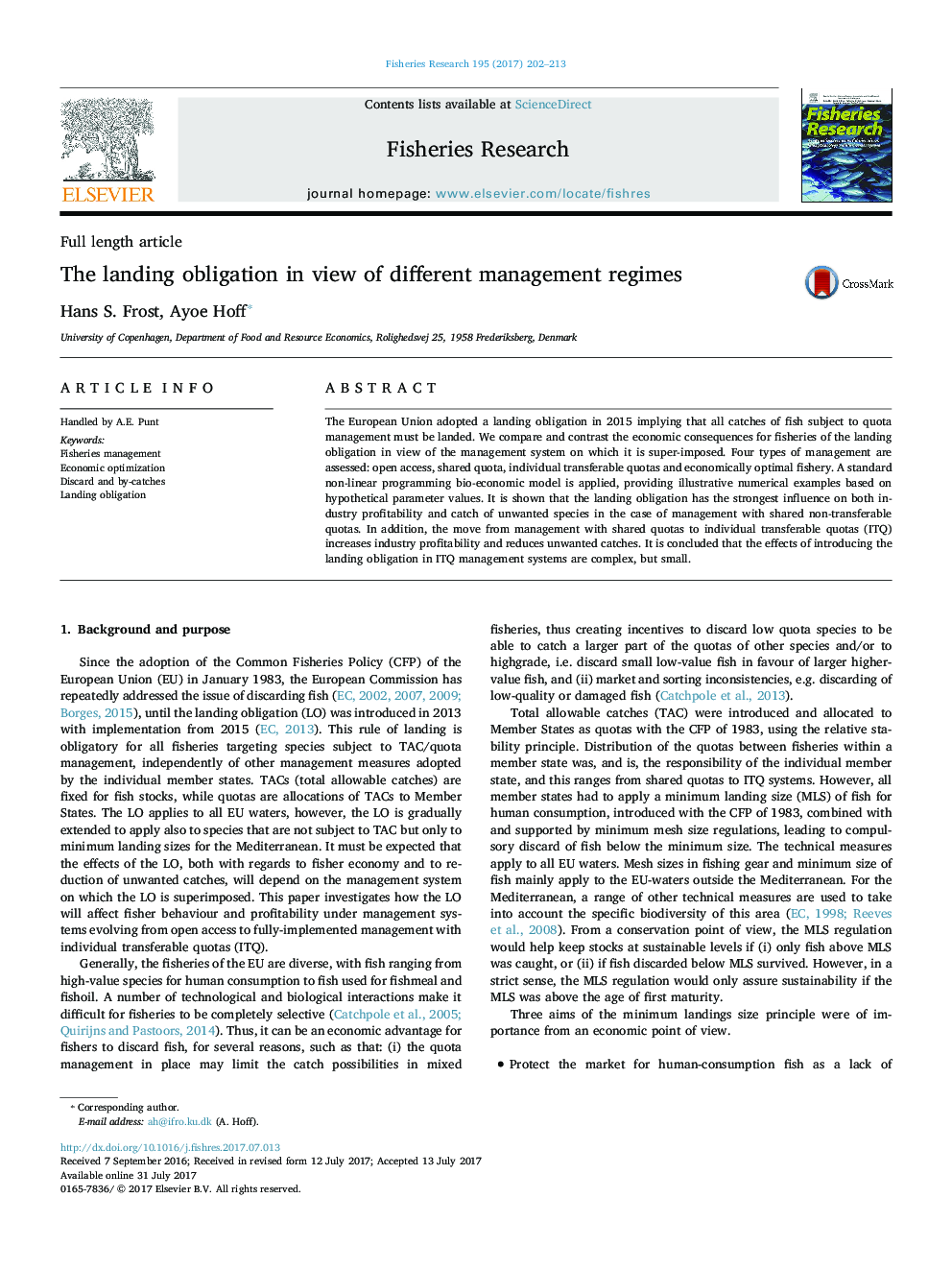| Article ID | Journal | Published Year | Pages | File Type |
|---|---|---|---|---|
| 5765518 | Fisheries Research | 2017 | 12 Pages |
The European Union adopted a landing obligation in 2015 implying that all catches of fish subject to quota management must be landed. We compare and contrast the economic consequences for fisheries of the landing obligation in view of the management system on which it is super-imposed. Four types of management are assessed: open access, shared quota, individual transferable quotas and economically optimal fishery. A standard non-linear programming bio-economic model is applied, providing illustrative numerical examples based on hypothetical parameter values. It is shown that the landing obligation has the strongest influence on both industry profitability and catch of unwanted species in the case of management with shared non-transferable quotas. In addition, the move from management with shared quotas to individual transferable quotas (ITQ) increases industry profitability and reduces unwanted catches. It is concluded that the effects of introducing the landing obligation in ITQ management systems are complex, but small.
